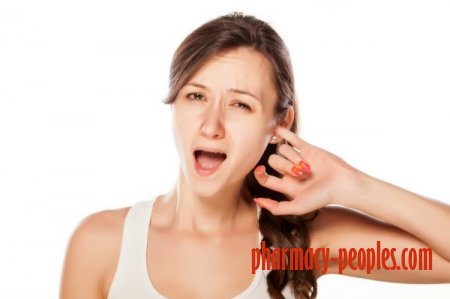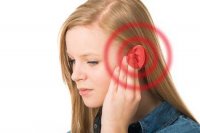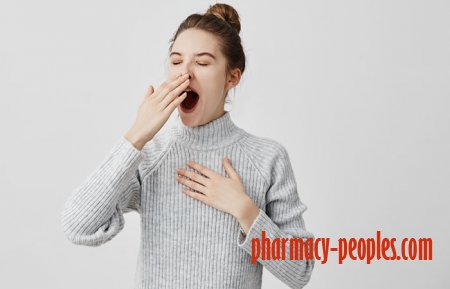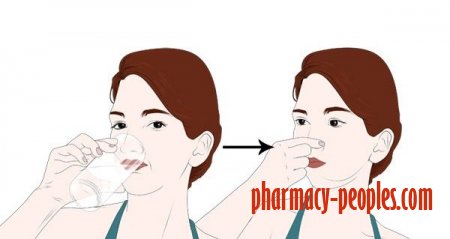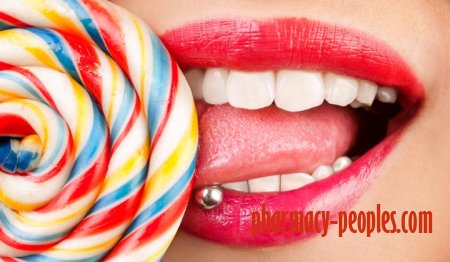Ear Popping. Ear Pressure Anxiety Symptoms
Anxiety disorder can produce a wide range of symptoms, including ear popping and ear pressure symptoms. This page explains their common descriptions, why anxiety can cause ear symptoms, and how you can get rid of them.
Because these symptoms can seem odd, and even bizarre at times, many anxious people worry and distress about them. Unfortunately, these types of behaviors continue to fuel symptoms, which can set up a vicious cycle of symptoms, worry, more symptoms, and so on.
Understanding why anxiety can cause anxiety symptoms can go a long way to help breaking this cycle. To that end, here are:
Ear popping and ear pressure symptoms descriptions:
It feels like your ears are popping more than usual.
You notice that your ears are popping for no apparent reason.
Your ear(s) feels like it has an unusual amount of pressure in it, but there is no reason for it.
Your ears are popping more often and for no reason.
It feels like your ears are more sensitive to pressure changes, such as going up or down hills or other elevation-related situations.
You can “pop” your ears more frequently.
It feels like there is a strong pressure in one or both ears.
It feels like it doesn’t take much to get your ears to pop.
It feels like your ear(s) experiencing much more pressure than normal.
1. Trouble focusing on sound:
During intense anxiety and stress when the brain can’t focus, it is not uncommon to find yourself “zoning out” to your thoughts, unable to pay attention to the world around you
This means that you may not be able to hear everything someone says while talking to you
It is not that you're not hearing them, instead your brain is simply not processing the information
2. Noticing unusual sounds:
Anxiety can also make you more prone to feeling “on edge”
That means that you may start to notice sounds and noises that you hadn’t noticed before
When experiencing anxiety, people can often hear every little creak, bump, etc.
3. Auditory Hallucinations:
Auditory hallucinations are rare- but they can happen
Hearing voices is incredibly rare and may be a sign of another issue
Some people may hear pops, or strange noises that no one else can hear
Other hallucinations are hearing a voice saying their name when it is not said
Surprisingly, no one is exactly sure what causes these from anxiety, but it is likely that your brain is simply processing information poorly
4. Tinnitus
Tinnitus is a chronic ringing of the ears that is more common as you age
Anxiety doesn’t create tinnitus, but studies have shown that anxiety increases the “loudness” of the ringing, as well as the perception of it
In other words, it may be both louder and anxiety may make you prone to noticing it more
How to get rid of ear popping and ear pressure anxiety symptoms?
When ear popping and ear pressure symptoms are caused by anxious behavior and the accompanying stress response changes, calming yourself down will bring an end to the stress response and its changes. As your body recovers from the active stress response, this anxiety symptom should subside. Keep in mind that it can take up to 20 minutes or more for the body to recover from a major stress response. But this is normal and shouldn’t be a cause for concern.
When ear popping and ear pressure symptoms are caused by chronic stress, such as that caused by overly apprehensive behavior, it may take a lot more time for the body to calm down and recover, and to the point where this anxiety symptom subsides.
Nevertheless, when the body has fully recovered from the stress of being anxious, whether acute or chronic, this anxiety symptom will completely disappear. Therefore, this anxiety symptom needn’t be a cause for concern as it is a common symptom associated with anxiety and stress.
You can speed up the recovery process by reducing your stress, practicing relaxed breathing, increasing your rest and relaxation, and not worrying about this symptom. Sure, ear popping and ear pressure can be bothersome, but again, it’s not harmful and will subside when your body has recovered from the stress response and/or chronic stress.
1. Yawning
Yawning can relieve popping ears almost instantly. This is because yawning causes your eustachian tube to open and restores the pressure balance in your middle ear . This alleviates symptoms of popping ears.
2. Swallowing
Just like yawning, swallowing causes your eustachian tube to open and balances the pressure inside your ears with the pressure around you.
3. Valsalva Maneuver
What You Have To Do
Inhale deeply and hold your breath tight.
Imagine that your chest and stomach are extremely tight and bear down as if you wish to initiate a bowel movement.
Hold this position for about 10 seconds.
Breathe out forcibly and resume normal breathing.
How This Works
The Valsalva maneuver is a breathing technique known to increase the pressure in your chest. It is used for a variety of ailments, including relieving popping ears caused by high altitudes or infections.
4. Toynbee Maneuver
What You Have To Do
Press your tongue to the roof of your mouth.
Pinch your nose and try to swallow.
How This Works
The Toynbee maneuver is a technique used to decrease the nasopharyngeal pressure on the middle ear and eustachian tube. It results in the opening of the eustachian tube and relieves popping sensations in the ear by restoring its pressure
5. Apply A Warm Washcloth
What You Have To Do
Take a bowl of hot water.
Soak a clean washcloth in it and wring out the excess water.
Apply the warm washcloth to your ears and leave it on for a minute.
Repeat the procedure 2 to 3 times.
Why This Works
Any source of warmth helps relieve a congested or blocked ear that could be causing it to pop. A warm compress thins the mucus and decongests your ears, especially if they are blocked due to a cold or flu.
6. Chewing Gum
Chewing on a piece of gum can also alleviate symptoms of popping ears. This is because chewing gum increases the production of saliva in your mouth, which, in turn, increases your swallowing rate. This helps in opening the eustachian tube and getting rid of popping ears.
7. Suck On Hard Candies
Just like chewing on gum, sucking on a candy increases the number of times you swallow the produced saliva. This, in turn, treats and even prevents popping ears.
8. Nasal Spray
What You Have To Do
Prepare saline water using distilled water.
Use the saline solution to irrigate your nostrils, one nostril at a time.
Take the saline solution in from one nostril and allow it to flush out through the other.
Repeat as required after intervals.
How This Works
Nasal sprays clear congestion in the nose by reducing the inflammation and swelling in the nasal passage (4). This helps in thinning and getting rid of the excess mucus in your nose and ears. Removal of the excess mucus helps get rid of ear popping caused by congestion due to a cold or flu.
9. Hot Water Bath
Taking a hot bath has almost the same effect as that of a warm compress. It helps in opening up your arteries and liquefying the mucus that could be causing congestion in your ears, helping in getting rid of the constant popping in your ears caused by respiratory infections.
10. Hydrogen Peroxide
What You Have To Do
Take 1 to 3 mL of 3% hydrogen peroxide in a medicine dropper.
Lie on your side and pour it in the ear facing the ceiling.
For safety, ask someone to assist you in this procedure.
Leave the hydrogen peroxide mixture in your ear for 10 to 15 minutes.
Blot the excess hydrogen peroxide that must have leaked out of your ear.
Repeat the procedure for the other ear as well.
How This Works
Too much wax in the ears is one of the main culprits for causing popping sounds in the ear. Hydrogen peroxide softens earwax and makes its removal easier.
You can also follow a few tips to avoid this problem.
Tips To Prevent Popping Ears
Yawn or swallow right before take-off and landing.
Maintain food hygiene to prevent catching a cold or flu.
Exert counter pressure on your eustachian tube by closing your mouth, pinching your nose, and blowing hard.
Use filtered earplugs to relieve pressure when you take off or land during a flight.
A combination of these tips and remedies should relieve popping almost immediately. If you notice no improvement, visit your doctor immediately. You must also seek medical attention if you notice any of the following.
When To See A Doctor
See your doctor if:
You can’t unclog your ears for more than two weeks.
You have developed sinusitis or an ear infection.
You have an allergy.
There is a build-up of wax in your ears.
The popping of ears is usually a normal phenomenon and not something you need to fear. But as it can interfere with your day-to-day life, it is best to follow the discussed tips and remedies discussed here to treat as well as prevent the condition.
Hope this post helped you get rid of popping ears for good. Share your views with us in the comments box below.
Because these symptoms can seem odd, and even bizarre at times, many anxious people worry and distress about them. Unfortunately, these types of behaviors continue to fuel symptoms, which can set up a vicious cycle of symptoms, worry, more symptoms, and so on.
Understanding why anxiety can cause anxiety symptoms can go a long way to help breaking this cycle. To that end, here are:
Ear popping and ear pressure symptoms descriptions:
It feels like your ears are popping more than usual.
You notice that your ears are popping for no apparent reason.
Your ear(s) feels like it has an unusual amount of pressure in it, but there is no reason for it.
Your ears are popping more often and for no reason.
It feels like your ears are more sensitive to pressure changes, such as going up or down hills or other elevation-related situations.
You can “pop” your ears more frequently.
It feels like there is a strong pressure in one or both ears.
It feels like it doesn’t take much to get your ears to pop.
It feels like your ear(s) experiencing much more pressure than normal.
4 Ways Anxiety Affects Your Ears & Hearing
1. Trouble focusing on sound:
During intense anxiety and stress when the brain can’t focus, it is not uncommon to find yourself “zoning out” to your thoughts, unable to pay attention to the world around you
This means that you may not be able to hear everything someone says while talking to you
It is not that you're not hearing them, instead your brain is simply not processing the information
2. Noticing unusual sounds:
Anxiety can also make you more prone to feeling “on edge”
That means that you may start to notice sounds and noises that you hadn’t noticed before
When experiencing anxiety, people can often hear every little creak, bump, etc.
3. Auditory Hallucinations:
Auditory hallucinations are rare- but they can happen
Hearing voices is incredibly rare and may be a sign of another issue
Some people may hear pops, or strange noises that no one else can hear
Other hallucinations are hearing a voice saying their name when it is not said
Surprisingly, no one is exactly sure what causes these from anxiety, but it is likely that your brain is simply processing information poorly
4. Tinnitus
Tinnitus is a chronic ringing of the ears that is more common as you age
Anxiety doesn’t create tinnitus, but studies have shown that anxiety increases the “loudness” of the ringing, as well as the perception of it
In other words, it may be both louder and anxiety may make you prone to noticing it more
How to get rid of ear popping and ear pressure anxiety symptoms?
When ear popping and ear pressure symptoms are caused by anxious behavior and the accompanying stress response changes, calming yourself down will bring an end to the stress response and its changes. As your body recovers from the active stress response, this anxiety symptom should subside. Keep in mind that it can take up to 20 minutes or more for the body to recover from a major stress response. But this is normal and shouldn’t be a cause for concern.
When ear popping and ear pressure symptoms are caused by chronic stress, such as that caused by overly apprehensive behavior, it may take a lot more time for the body to calm down and recover, and to the point where this anxiety symptom subsides.
Nevertheless, when the body has fully recovered from the stress of being anxious, whether acute or chronic, this anxiety symptom will completely disappear. Therefore, this anxiety symptom needn’t be a cause for concern as it is a common symptom associated with anxiety and stress.
You can speed up the recovery process by reducing your stress, practicing relaxed breathing, increasing your rest and relaxation, and not worrying about this symptom. Sure, ear popping and ear pressure can be bothersome, but again, it’s not harmful and will subside when your body has recovered from the stress response and/or chronic stress.
10 Best Ways To Get Rid Of Popping Ears
1. Yawning
Yawning can relieve popping ears almost instantly. This is because yawning causes your eustachian tube to open and restores the pressure balance in your middle ear . This alleviates symptoms of popping ears.
2. Swallowing
Just like yawning, swallowing causes your eustachian tube to open and balances the pressure inside your ears with the pressure around you.
3. Valsalva Maneuver
What You Have To Do
Inhale deeply and hold your breath tight.
Imagine that your chest and stomach are extremely tight and bear down as if you wish to initiate a bowel movement.
Hold this position for about 10 seconds.
Breathe out forcibly and resume normal breathing.
How This Works
The Valsalva maneuver is a breathing technique known to increase the pressure in your chest. It is used for a variety of ailments, including relieving popping ears caused by high altitudes or infections.
4. Toynbee Maneuver
What You Have To Do
Press your tongue to the roof of your mouth.
Pinch your nose and try to swallow.
How This Works
The Toynbee maneuver is a technique used to decrease the nasopharyngeal pressure on the middle ear and eustachian tube. It results in the opening of the eustachian tube and relieves popping sensations in the ear by restoring its pressure
5. Apply A Warm Washcloth
What You Have To Do
Take a bowl of hot water.
Soak a clean washcloth in it and wring out the excess water.
Apply the warm washcloth to your ears and leave it on for a minute.
Repeat the procedure 2 to 3 times.
Why This Works
Any source of warmth helps relieve a congested or blocked ear that could be causing it to pop. A warm compress thins the mucus and decongests your ears, especially if they are blocked due to a cold or flu.
6. Chewing Gum
Chewing on a piece of gum can also alleviate symptoms of popping ears. This is because chewing gum increases the production of saliva in your mouth, which, in turn, increases your swallowing rate. This helps in opening the eustachian tube and getting rid of popping ears.
7. Suck On Hard Candies
Just like chewing on gum, sucking on a candy increases the number of times you swallow the produced saliva. This, in turn, treats and even prevents popping ears.
8. Nasal Spray
What You Have To Do
Prepare saline water using distilled water.
Use the saline solution to irrigate your nostrils, one nostril at a time.
Take the saline solution in from one nostril and allow it to flush out through the other.
Repeat as required after intervals.
How This Works
Nasal sprays clear congestion in the nose by reducing the inflammation and swelling in the nasal passage (4). This helps in thinning and getting rid of the excess mucus in your nose and ears. Removal of the excess mucus helps get rid of ear popping caused by congestion due to a cold or flu.
9. Hot Water Bath
Taking a hot bath has almost the same effect as that of a warm compress. It helps in opening up your arteries and liquefying the mucus that could be causing congestion in your ears, helping in getting rid of the constant popping in your ears caused by respiratory infections.
10. Hydrogen Peroxide
What You Have To Do
Take 1 to 3 mL of 3% hydrogen peroxide in a medicine dropper.
Lie on your side and pour it in the ear facing the ceiling.
For safety, ask someone to assist you in this procedure.
Leave the hydrogen peroxide mixture in your ear for 10 to 15 minutes.
Blot the excess hydrogen peroxide that must have leaked out of your ear.
Repeat the procedure for the other ear as well.
How This Works
Too much wax in the ears is one of the main culprits for causing popping sounds in the ear. Hydrogen peroxide softens earwax and makes its removal easier.
You can also follow a few tips to avoid this problem.
Tips To Prevent Popping Ears
Yawn or swallow right before take-off and landing.
Maintain food hygiene to prevent catching a cold or flu.
Exert counter pressure on your eustachian tube by closing your mouth, pinching your nose, and blowing hard.
Use filtered earplugs to relieve pressure when you take off or land during a flight.
A combination of these tips and remedies should relieve popping almost immediately. If you notice no improvement, visit your doctor immediately. You must also seek medical attention if you notice any of the following.
When To See A Doctor
See your doctor if:
You can’t unclog your ears for more than two weeks.
You have developed sinusitis or an ear infection.
You have an allergy.
There is a build-up of wax in your ears.
The popping of ears is usually a normal phenomenon and not something you need to fear. But as it can interfere with your day-to-day life, it is best to follow the discussed tips and remedies discussed here to treat as well as prevent the condition.
Hope this post helped you get rid of popping ears for good. Share your views with us in the comments box below.
- ---
- 3-11-2018, 16:16
- 4 422
- Pharmatic
